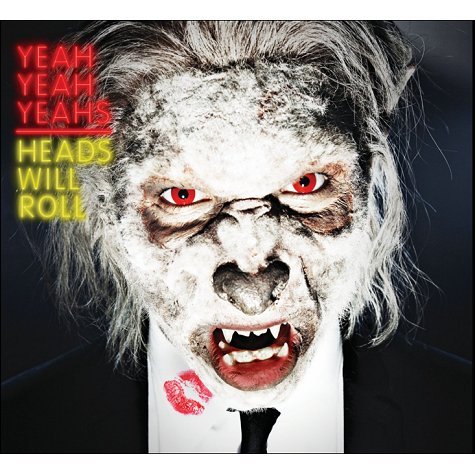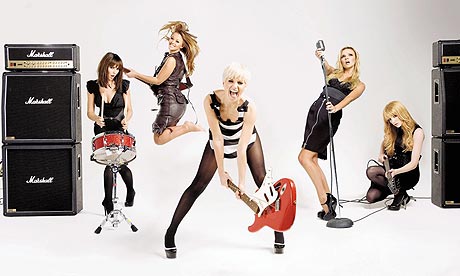Yeah Yeah Yeahs – Heads Will Roll (Polydor)

With the majesty of the New York trio’s third LP It’s Blitz! well and truly sealed, it remains only for us to pick over the singles in an effort to throw praise on them once again. Come on, folks! Praise them! Everyone’s doing it! Heads Will Roll begins with a synth intro not dissimilar from Queen’s I Want To Break Free, but rather than Freddie Mercury dressed as a housewife, Karen O is thrust before us: enigmatic, magnetic as ever. Because she now sees her voice as an instrument, not merely the focal point atop instrumental wizardry, we’re treated to an ever-more nuanced and considered performance, changing in timbre and colour, but precise and needle-sharp when it needs to be.
But what the balls is she on about? Silver on the wet streets? Glitter over everything? Off with their heads?! This is the sort of disco-gone-gory that might be more aligned with the ugly, solemn, Quaalude-enhanced side of the genre, but the sass and swagger remain totally intact. As Karen O’s foxing words trip out of her mouth and splat on the dancefloor, the listener is left in no doubt as to what kind of party we’re attending.
Even the video (in which a man turns into a wolf and rips the band and assorted revellers to fucking shreds with balletic aplomb) lets us know that this is not a light-hearted (of glass) affair. The drama has to come from the frisson of direct wordage in a style normally associated with the human act of frivolous dance. But then again, don’t all the best disco songs deal with considerably darker issues than the music suggests? With Heads Will Roll, Yeah Yeah Yeahs show us their updated version of that maxim and produce one of their most entrancing and consummate singles to date.
—
BOOM, it’s out and you know it. This was snaffled from Artrocker magazine (IT TAKES UP A WHOLE PAGE, LAD!)


